Demand Generation.
Drive Qualified, Ready-to-Buy Leads.
Six & Flow helps businesses build a demand engine that converts prospects into revenue through data-driven insights, AI-powered marketing, and strategic channel planning.
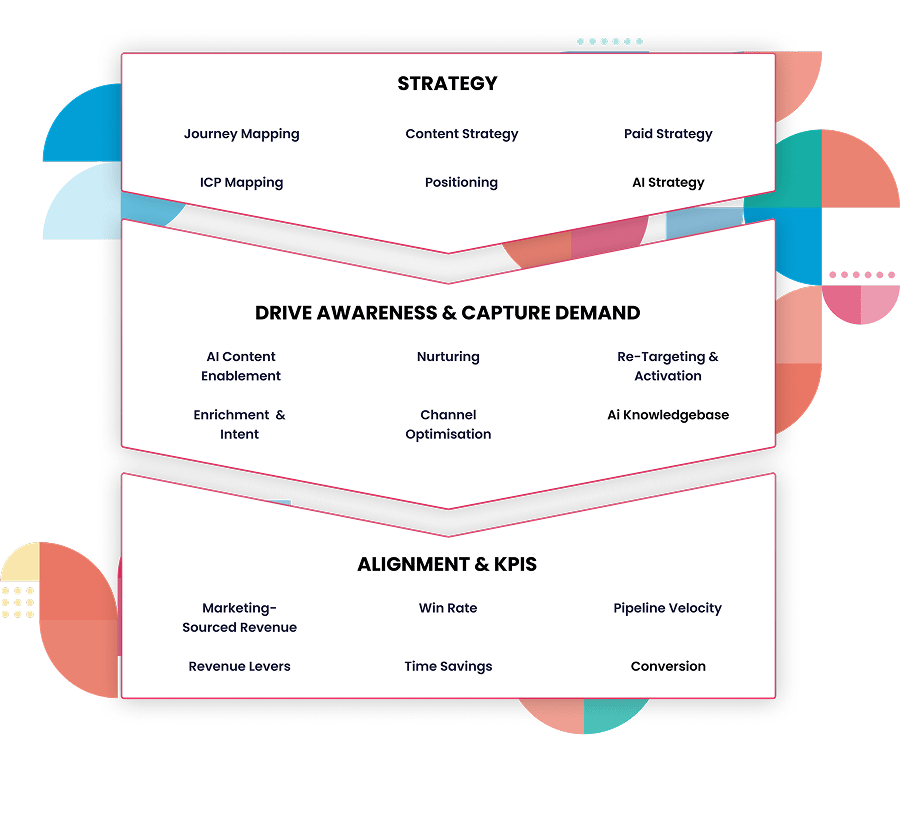
A Strategic, Results-Driven Approach
Six & Flow is a results-driven demand generation partner that blends strategy, execution, and HubSpot expertise to create highly effective, scalable marketing programs.
By integrating data, automation, and AI-driven content, we ensure demand generation efforts are targeted, efficient, and aligned with business goals. Our approach is designed to optimise how businesses attract, engage, and convert customers, so that marketing becomes a revenue-generating engine.
Driving Growth for 500+ Global Brands
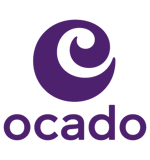
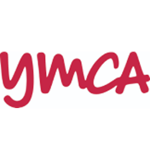
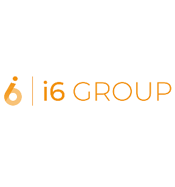

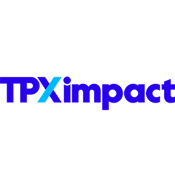

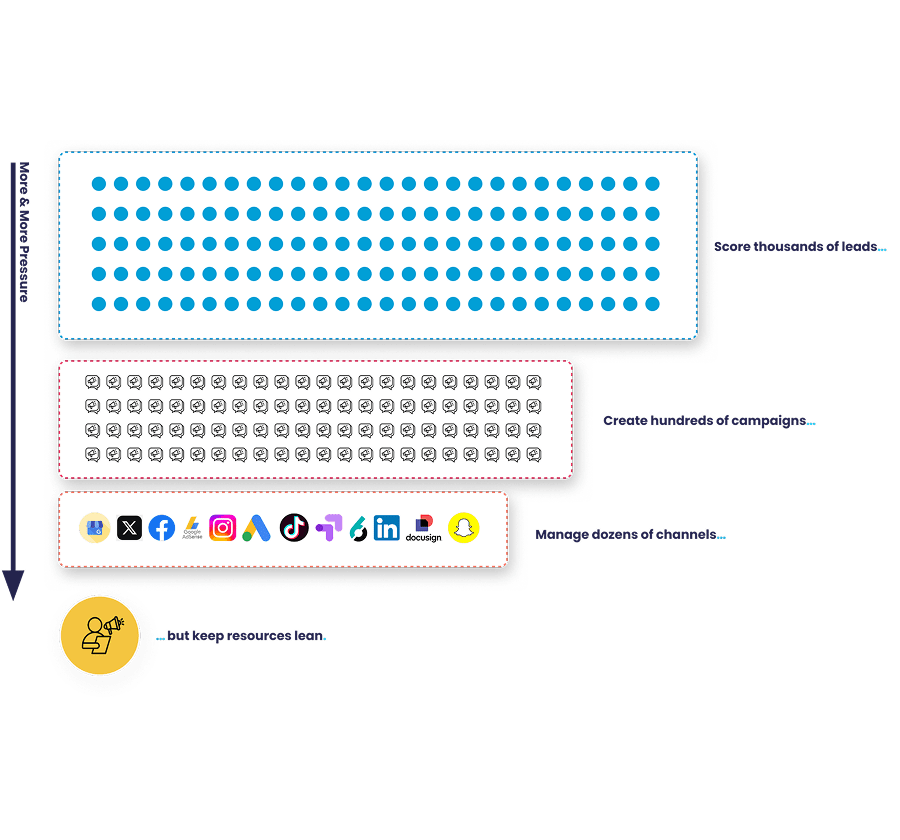
It’s Time For Demand Generation To Evolve
The Modern Marketer’s Reality.
B2B marketers are under pressure to score thousands of leads, launch hundreds of campaigns, and manage multiple channels, all while keeping budgets lean. AI has transformed marketing execution, but without a strong strategic foundation, AI alone won’t drive results.
With sales cycles becoming longer and buying committees expanding, creating demand isn’t just about volume. It’s about delivering the right message, at the right time, through the right channels.
Our Approach
Align Demand Generation with Modern B2B Buying.
To stay ahead in today’s market, businesses need a structured approach to demand generation. Six & Flow focuses on three key areas to ensure marketing efforts drive pipeline, revenue, and long-term growth.
Optimise & Measure
Accurate reporting is critical for demand generation success. We ensure businesses have data-driven insights to measure demand performance, track attribution, and optimise marketing spend effectively.
AI Enablement
AI is a force multiplier, but without strategy, it lacks impact. We prepare teams to deploy AI-powered marketing programs that improve efficiency while maintaining a human-driven strategic foundation.
Acquire & Expand
Capturing high-intent buyers requires targeted campaigns that convert demand into pipeline. We help businesses create precision-driven acquisition and expansion strategies that drive net-new revenue while increasing customer lifetime value.
Build A Demand Generation Strategy for Efficient Growth.
The Workshop, Implementation & Optimisation.
Marketing has changed, and traditional demand generation models are no longer effective. Buyers don’t follow linear funnels. They research independently, engage across multiple touchpoints, and expect seamless, valuable interactions before making a decision. Six & Flow redefines demand generation to create efficient, scalable, and profitable growth. Our approach ensures businesses can reach, engage, and convert high-intent prospects in a way that aligns with modern buyer expectations.

Map the Current Landscape
The Workshop.
Understanding what’s working and what isn’t is key to refining demand generation. Through our strategy workshops, we help businesses map their current marketing landscape, analyse performance, and identify opportunities for optimisation.
Our workshops focus on persona mapping, competitor analysis, and customer journey refinement to ensure demand generation strategies are aligned with business objectives. By honing in on top-performing channels and removing inefficiencies, we create an actionable roadmap for demand generation success.
.png?width=900&height=840&name=Six%20%26%20Flow%20_%20HubSpot%20AI%20Implementation(1).png)
Data-Driven Demand Generation
Implementing the Strategy.
Six & Flow resolves data gaps, optimises marketing automation, and deploys AI-driven content strategies to help businesses capture more demand.
By integrating advanced reporting, campaign tracking, and AI-powered content creation, we ensure marketing programs are scalable, measurable, and highly targeted.
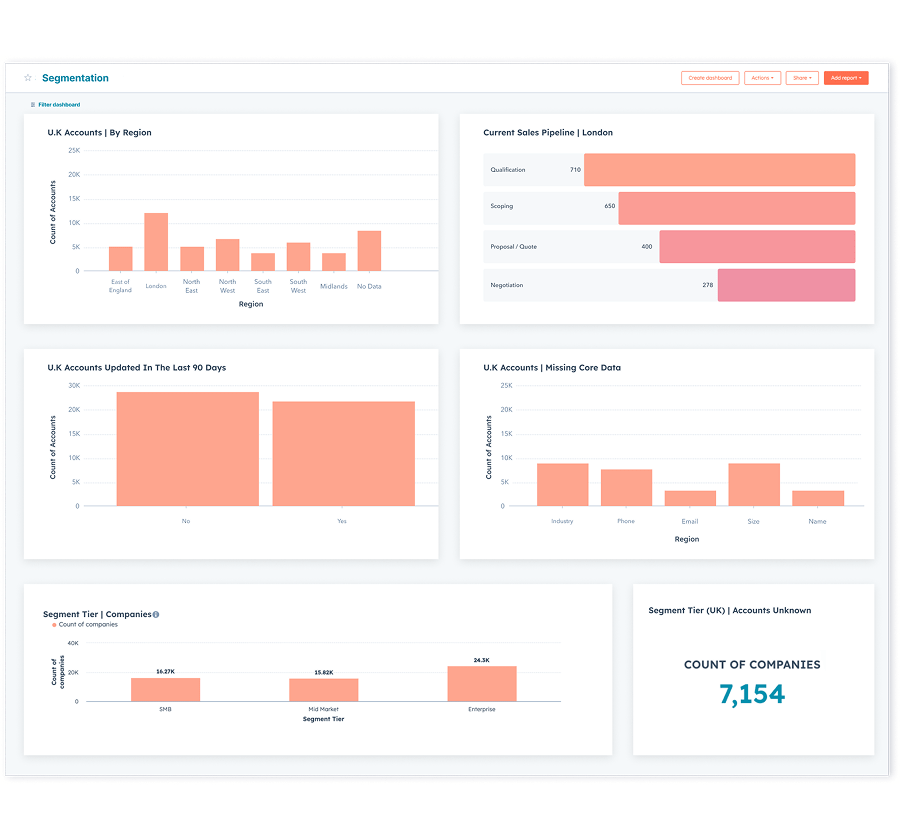
Continue Delivering Marketing Results
Optimising & Training.
Demand generation strategies must be continuously refined based on data insights, performance trends, and evolving buyer behaviours.
Six & Flow provides ongoing training, AI enablement, and campaign optimisation to ensure marketing teams stay ahead of the curve. We partner with businesses to execute acquisition and expansion strategies that not only attract new customers but also maximise value from existing accounts.
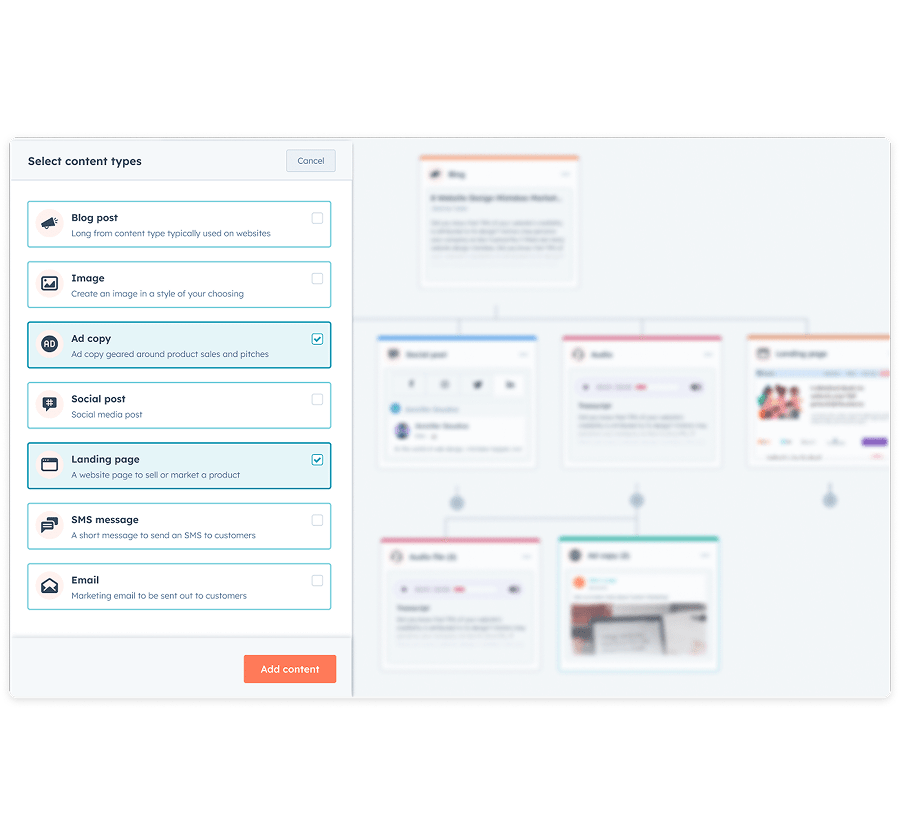
Scale Content with AI & Strategy
AI Content Enablement.
AI is here and built into marketer’s everyday tool kit. But, without a strategic approach, AI-driven content lacks direction. Six & Flow combines AI-powered content production with a data-driven content strategy to deliver high-quality, scalable marketing assets.
By leveraging HubSpot AI and intelligent agents, we automate content creation while ensuring it remains aligned with customer needs, brand positioning, and demand generation goals.
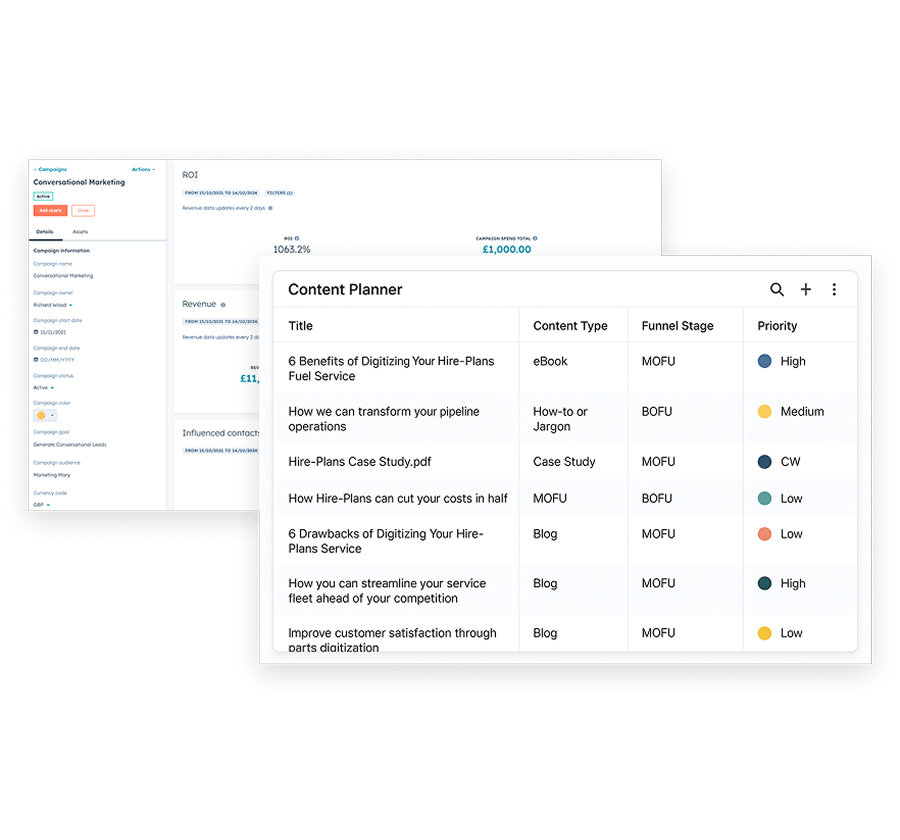
Strategic Execution Across Every Touchpoint
Channel Planning.
A great marketing strategy means nothing if it’s not executed properly. Channel planning ensures that demand generation campaigns are delivered with precision, timing, and impact.
Six & Flow works with businesses to plan content across quarters, align messaging to strategic objectives, and track performance in HubSpot. For teams looking to streamline execution further, we offer AI-powered content planning, enabling automated topic generation and campaign structuring.
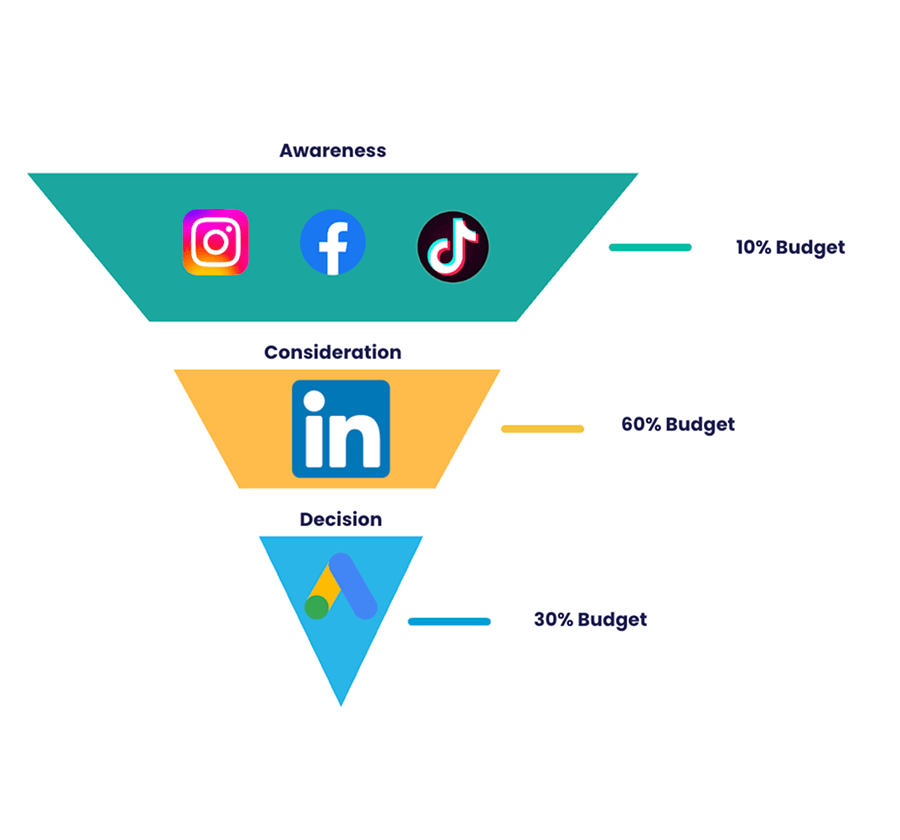
Maximise ROI & Capture High-Intent Buyers
Paid Media.
Paid media plays a crucial role in generating demand at scale. Instead of a one-size-fits-all approach, Six & Flow optimises ad spend across paid search and social, ensuring businesses target the right accounts, at the right time, with the right message.
Through a structured testing model, we continually refine paid media strategies to increase engagement, lower cost per acquisition, and drive measurable pipeline growth.
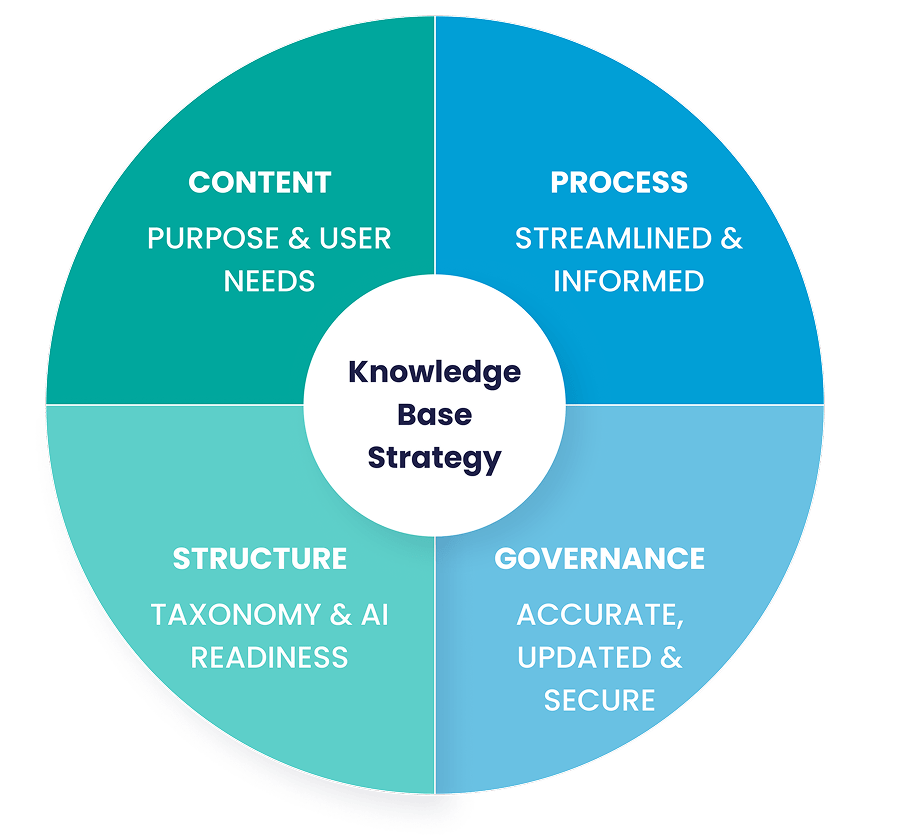
Structure Data for AI-Powered Marketing
AI Knowledge Base Readiness.
A well-structured knowledge base is essential for maximising AI-driven marketing impact. Six & Flow helps businesses audit, optimise, and migrate knowledge bases to improve AI accuracy, enhance self-service success, and drive better demand generation outcomes.
By ensuring AI tools have clean, structured, and relevant content, we help businesses improve search accuracy, content discovery, and campaign effectiveness.
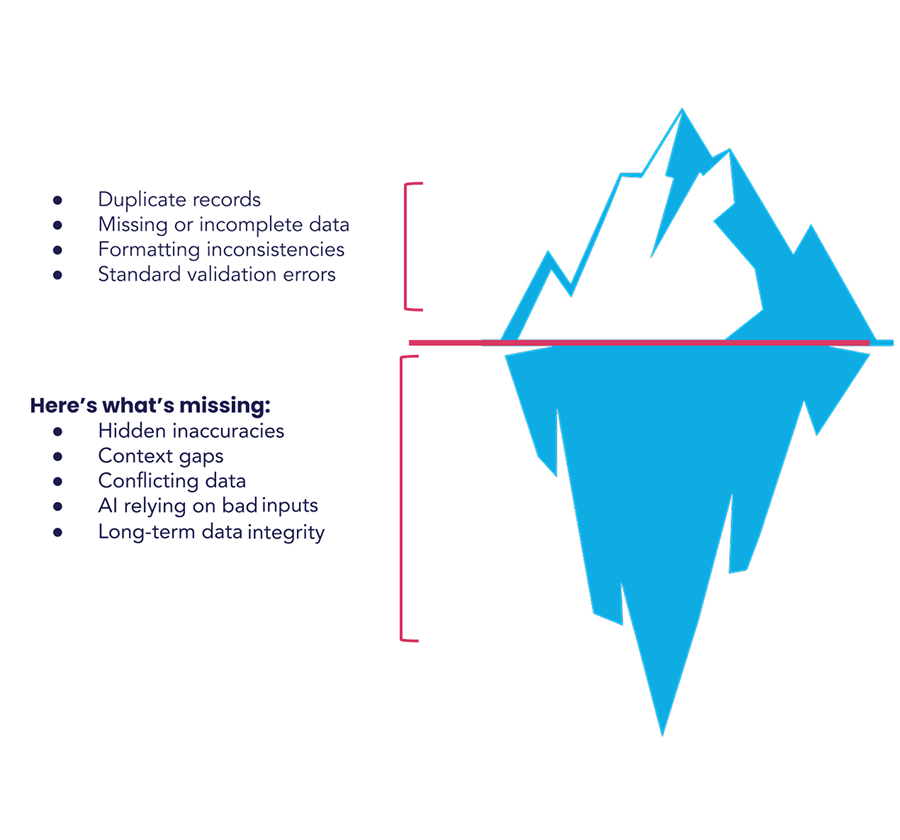
Prepare Your Data for AI
Featured On-Demand Webinar.
AI is only as powerful as the data and processes behind it. Simply implementing AI won’t drive results if your foundation isn’t solid. Watch the on-demand webinar to explore why prioritising data quality and process optimisation is essential, and the impact HubSpot AI can have when your data is optimal.
Let's Talk
Build a Demand Strategy That Drives Pipeline
Demand generation has never been more complex, but the right strategy makes it efficient, scalable, and revenue-driven. Six & Flow helps businesses turn marketing programs into high-performing, data-backed demand engines that drive long-term growth.

